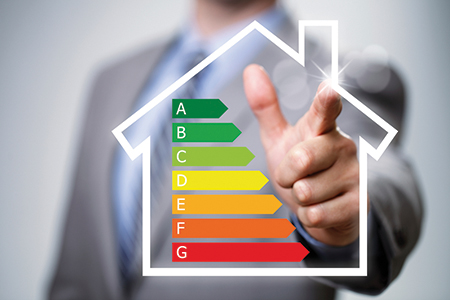Property Assessed Clean Energy (PACE) programs provide financing for energy-related home improvement projects such as solar panels or energy-efficient windows. PACE programs allow local governments to provide financing to property owners for these projects, and homeowners repay the amount borrowed, over a period of years, through an assessment added to their property tax bill.
PACE programs allow homeowners to make their homes more energy-efficient and save money on their utility bills. While these programs contribute to broader nationwide goals, such as energy independence and lower CO2 emissions, the National Association of REALTORS® (NAR) has identified several concerns about these programs, which could negatively affect homeowners and real estate professionals.
- Mortgage and Credit Availability – NAR is concerned that PACE loans could have an adverse impact on credit and mortgage availability. In most cases, mortgages take priority over PACE liens. But if a home is foreclosed on, the liens are paid before the mortgage lender can recoup any money. If the PACE loan takes the first position ahead of the mortgage, it may lead to the devaluation of the mortgage. This has the effect of making mortgages riskier and more expensive.
- Disclosure Requirements – Real estate professionals are concerned about disclosure requirements. PACE loans are included in the tax bill regardless of the property owner, so this would need to be disclosed to a potential buyer. The PACE loan or the energy improvement may be complicated or difficult to explain, and the buyer may be confused about the improvement or loan, injecting uncertainty into the transaction.
- Completion of the Transaction – PACE loans stay with the property and not with the property owner, so the information on the tax assessment about the loan will need to be explained by the real estate agent each time the property is sold. This potential for confusion may cause delays in the completion of the transaction, or even a cancellation.
- Fraud and Abuse – These programs raise the possibility for unscrupulous contractors to pressure unsuspecting homeowners into making improvements that do not meet energy efficiency expectations or realize cost savings.
On July 6, 2010, the Federal Housing Finance Agency (FHFA) issued a statement that notes, in part: “The Federal Housing Finance Agency has determined that certain energy retrofit lending programs present significant safety and soundness concerns…First liens established by PACE loans are unlike routine tax assessments and pose unusual and difficult risk management challenges for lenders…They present significant risk to lenders and secondary market entities, may alter valuations for mortgage-backed securities and are not essential for successful programs to spur energy conservation.”
This statement, and subsequent statements released by the FHFA expressing concerns about various aspects of PACE programs, have chilled the demand for these programs.
Recently, the Federal Housing Administration (FHA) published guidance which clarified that properties with subordinated PACE loans can be purchased and refinanced with an FHA-insured mortgage. This guidance included the conditions under which borrowers purchasing or refinancing properties with existing PACE assessments will be eligible to use FHA-insured financing.
This column is brought to you by the NAR Real Estate Services group.
For more information, please visit www.nar.realtor.
For the latest real estate news and trends, bookmark RISMedia.com.











